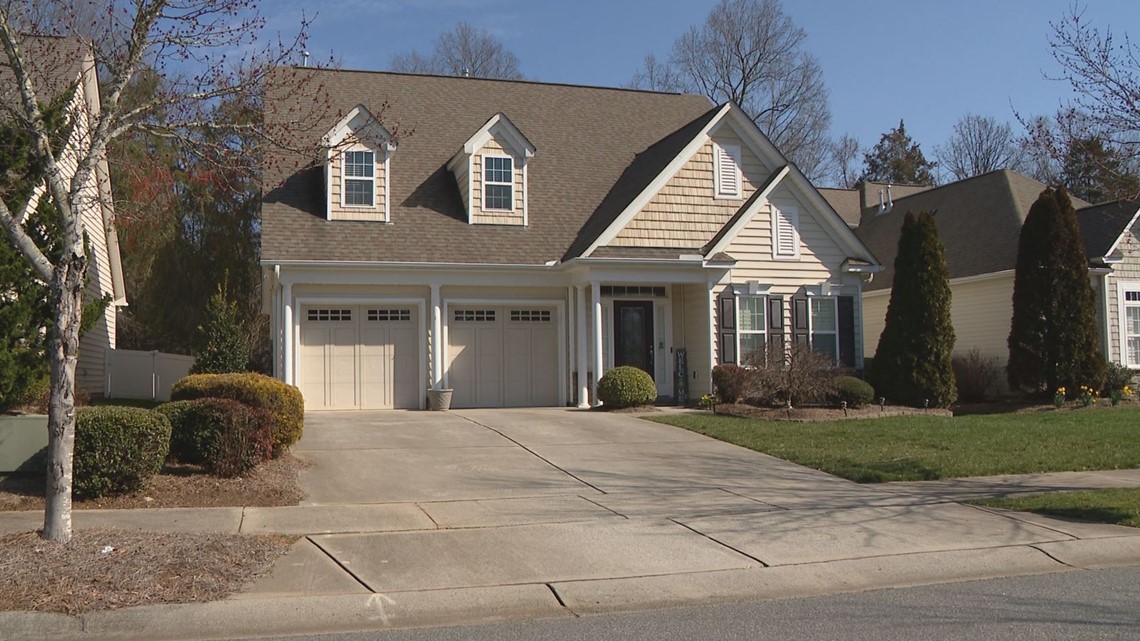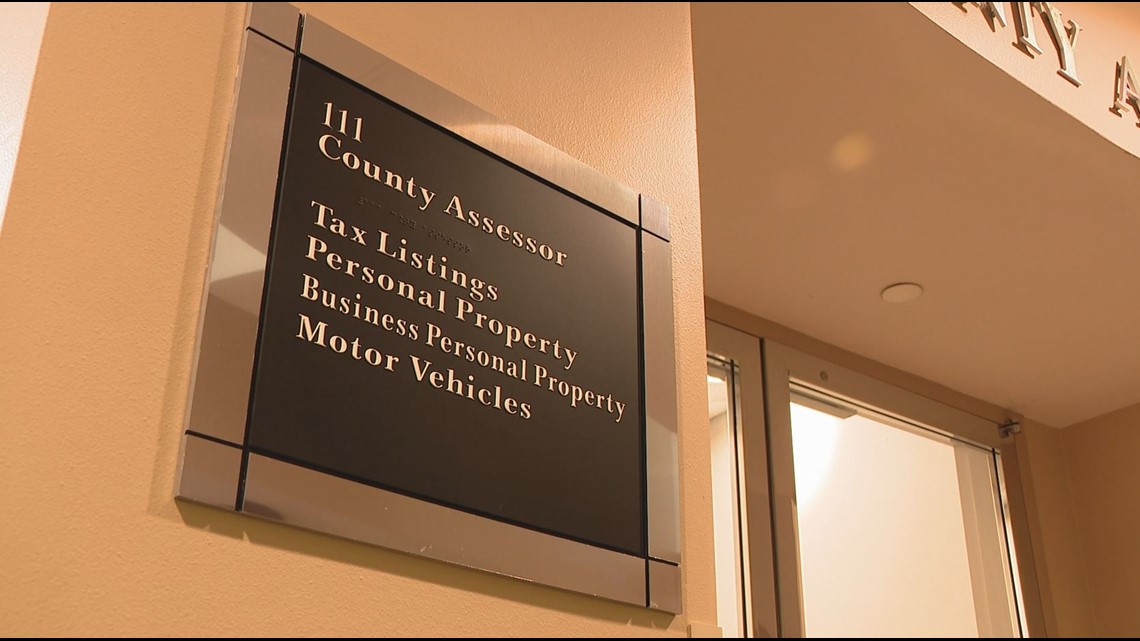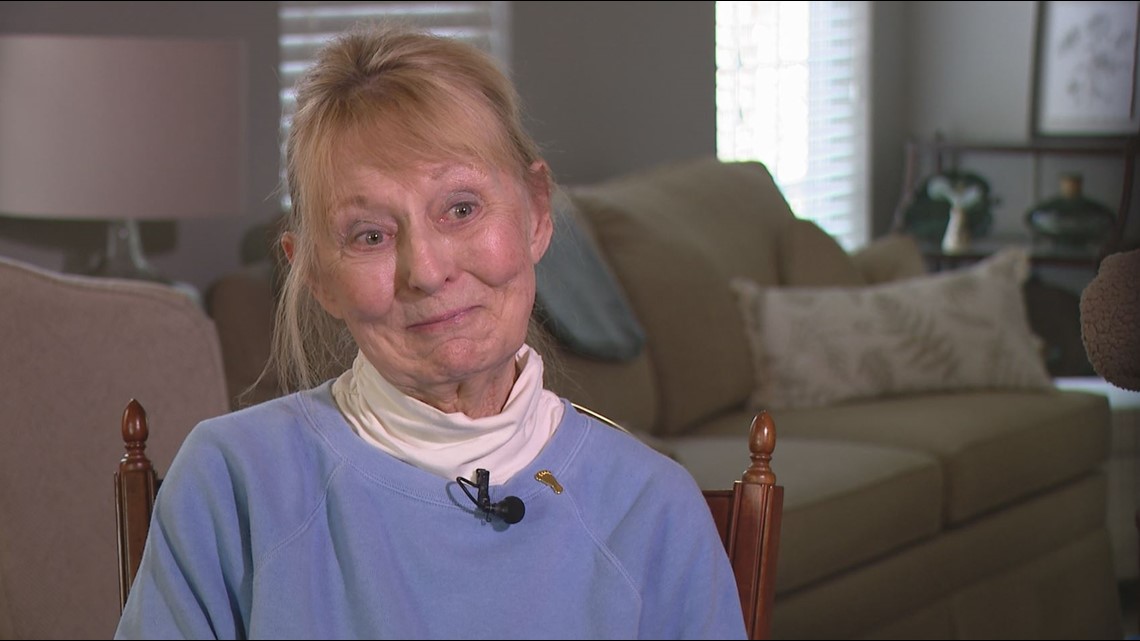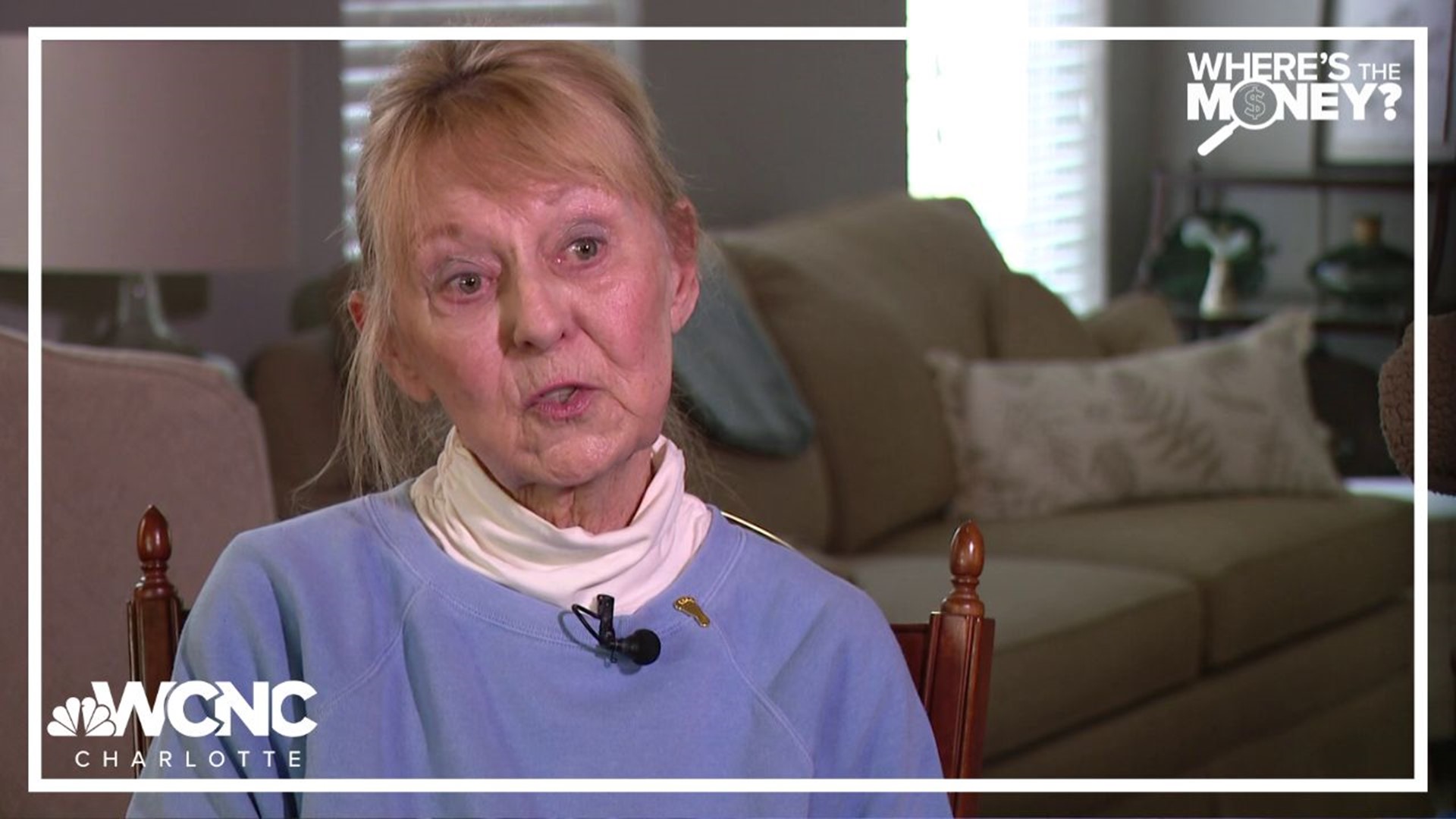CABARRUS COUNTY, N.C. — A Cabarrus County retired couple spent years unknowingly paying too much in property taxes, all because the tax office drastically overestimated the square footage of their home. Despite the "incorrect estimation," the husband and wife recently learned they can't get any of their money back.
The couple only learned about the overestimation after they began the selling process to downsize to a smaller home. As part of that process, an appraiser measured their home and discovered that their house was 300 square feet less than what was on record.
WCNC Charlotte investigated this discrepancy, including how homeowners can check to make sure they are paying property taxes on the correct square footage of their homes.
Why would I have questioned that?


Jan Keel, a former kindergarten teacher, is hoping others will learn from their experience.
"It has been something that has really gnawed at me," Keel said. "I hate to say this, but I do wake up at night and I think about it."
The 77-year-old and her husband Tom, also a retired public servant, first moved to Cabarrus County from Wilmington in 2011. She said they were drawn to the county, in part, by its comparative affordability.
"We noticed that Cabarrus has better tax rates than Mecklenburg," she said.
They picked a new build in Concord. The Keels would remain in that "ultimate house" for almost a decade until a series of medical challenges forced them to downsize. They had hoped the change would save them money so that one day they could pay for long-term care for Tom's dementia.
As they prepared to sell their house in 2020, the husband and wife learned they should have even more cash in the bank.
"It was devastating," Keel said. "I was really, really surprised."
WCNC Charlotte is always asking "where's the money?" If you need help, reach out to WCNC Charlotte by emailing money@wcnc.com.
The tax office inflated the home's square footage


Keel said an appraiser measured the home as part of the selling process and discovered the actual size of the house was more than 300 square feet less than what the Cabarrus County Tax Administration had on record. The tax office documented the square footage as 2,646 rather than 2,338.
The extra 300 square feet was the result of mislabeling a vaulted ceiling as an actual living space. The incorrect square footage later grew as high as 2,680, according to tax records.
"The measurement was wrong for nine years," Keel said. "I'm angry. I'm angry with myself. I'm angry for all those people who are unknowing."
Keel said she paid her taxes every year through escrow and it never dawned on her to double-check the county's math.
"Why would I have questioned that?" she asked.
While square footage is not the only factor used to determine the value of a home, it is a big factor. That number is essentially a multiplier to the adjusted base rate determined by the county. You won't find the calculation in your annual property tax bill or the revaluation notices sent out every few years. Instead, the square footage is listed in the Property Record Card, which is only available on the county's website.
After the appraiser pointed out the discrepancy, Keel alerted the tax office, which quickly corrected the information, but told her she had no recourse.
A mistake?


"We have information that our estimate was incorrect at that time," Cabarrus County Tax Administrator David Thrift said.
"So, a mistake?" WCNC Charlotte questioned.
"A difference in appraisal," Thrift replied.
"This looks like you all made a mistake. You don't think this was a mistake?" WCNC asked.
"My answer to that was we made an incorrect estimation as part of our appraisal," Thrift added.
"You understand how it would feel for these people in hindsight to know this now?" WCNC Charlotte asked.
"Sure, I can see their concern," he replied, adding, that beyond the square footage, the county corrected "other factors that were unknown that we didn't have accurately assessed for."


Thrift said his office's goal is to get the most accurate measurements possible for all 97,500 properties in Cabarrus County. That process starts when a home is under construction and appraisers can get inside and physically measure. He said the county completes a final inspection once construction is finished. When the county doesn't have access, Thrift said county employees do their best to estimate.
"When we identify something that we misestimated, in this case, certainly it's not something we like to hear," Thrift said. "We want to correct the record as soon as we can and our goal is to be as accurate as we can."
While misestimates are uncommon, Thrift said they are not unheard of. That's why he wants to educate people too. Thrift said if an owner looks at their Property Record Card and thinks any of the details are wrong, they don't need to hire an appraiser. He said his office is more than happy to come back out and remeasure.
How to find your property record card


A home's square footage is only available on the Property Record Card, which Cabarrus County homeowners can find on the county's website.
"If there's something that they think is incorrect, we're certainly willing to come back, do an on-site inspection and correct that if they would allow us inside," he said. "Our suggestion at this point in the process is not to expend any money on a third party."
He also said if a property owner wants their eventual bill to reflect an accurate tax amount, they need to report discrepancies now, during the revaluation appeal window, before the Board of Equalization and Review meets in mid-April. He told WCNC Charlotte, in Keel's case, "There's no recourse there."
State law limits a person's ability to recoup property tax payments from prior years. To recoup money, people need to prove the tax was either illegal or the result of a clerical error.
"A clerical error has been defined as an error in which we, the tax office, have indicated and made an assumption on a Property Record Card, for example, and then it was clerically input wrong, so the ultimate value was different than what we intended," Thrift said. "If the value is what we intended and that's what's at dispute, then that's not something we can look at in arrears to."
A valuable lesson


Keel may have learned this lesson too late, but not too late to protect others. She's since talked at length with Thrift and offered suggestions to better avoid this kind of situation in the future. She also shared feedback about how the county can better communicate with property owners.
"We spoke...and had, in my opinion, a very good conversation," Thrift said. "It was beneficial for me to hear her story and her experience, including some suggested ideas to further educate our taxpayers. I hope I was able to offer some information that aided her understanding as well."
Keel said she's finally accepted the situation.
"I feel a little bit like I bear some responsibility," she said. "I will never take things for granted like this again. I will always question."
Contact Nate Morabito at nmorabito@wcnc.com and follow him on Facebook, X and Instagram.
WCNC Charlotte's Where's The Money series is all about leveling the playing field in the Carolinas by helping others and breaking down barriers. WCNC Charlotte doesn't want our viewers to be taken advantage of, so we’re here to help. Watch previous stories where we ask the question “Where’s the Money” in the YouTube playlist below and subscribe to get updated when new videos are uploaded.


